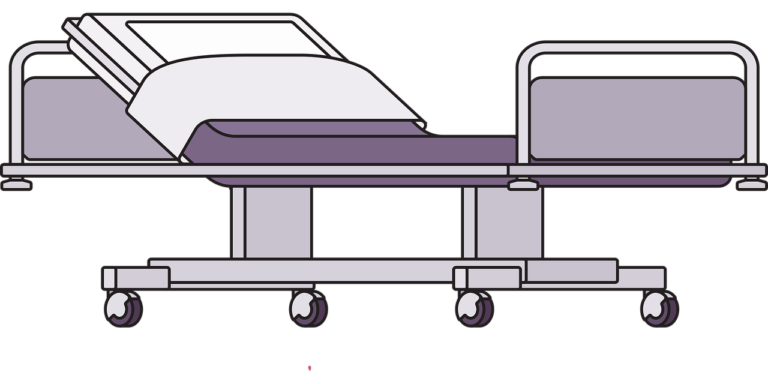Book Appointment Now

Nursing Research and Management
Effective management is crucial to delivering quality patient care in the rapidly evolving healthcare industry. A key driver of innovation and evidence-based practice is the integration of nursing research and management. By combining the latest research with strong management principles, nursing leaders can make informed decisions that improve patient outcomes, streamline operations, and enhance staff performance. This article explores the relationship between nursing research and management and how it contributes to better healthcare delivery and organizational success.
The Role of Nursing Research in Management
Nursing research serves as the backbone of evidence-based practice, empowering nurse managers and leaders to make data-driven decisions. By analyzing current trends, best practices, and innovative solutions, nurse managers can apply research to areas like staffing, patient care protocols, resource allocation, and policy development. Integrating nursing research and management ensures that healthcare organizations remain adaptable, efficient, and responsive to the needs of both patients and healthcare professionals.
Key Benefits of Nursing Research in Management:
- Improved patient care: Research-based decisions result in better patient outcomes and safety.
- Enhanced efficiency: Implementing evidence-based strategies leads to optimized workflows and resource utilization.
- Professional development: Nurse managers can use research to foster continuous learning and development within their teams.
- Data-driven decision-making: Research equips management with the necessary tools to solve complex problems using proven methods.
Looking for essay writing help about nursing research and management paper?
Help With Nursing Paper
How Nursing Research Supports Leadership in Management
Nurse managers play a pivotal role in healthcare settings by overseeing day-to-day operations, guiding clinical teams, and ensuring patient care quality. Through research, these leaders can stay informed about the latest developments in nursing practices and healthcare policies, which directly impacts their ability to lead effectively.
1. Evidence-Based Decision Making
One of the key ways nursing research and management intersect is through evidence-based decision-making. Nurse leaders rely on up-to-date research to implement policies that improve patient outcomes, reduce healthcare costs, and streamline clinical operations. For example, research might reveal the most effective staffing models to reduce nurse burnout, which can then be applied in management decisions to enhance workforce satisfaction and retention.
Applications of Evidence-Based Management:
- Developing policies based on patient safety research.
- Optimizing nurse-to-patient ratios by analyzing staffing studies.
- Implementing new technologies proven to improve patient care outcomes.
2. Workforce Management and Development
Nursing research and management also intersect in workforce development. Research helps nurse managers identify strategies to enhance staff performance, reduce turnover, and promote a positive work environment. By reviewing studies on effective leadership styles, job satisfaction, and professional development programs, nurse managers can create initiatives that support staff growth and well-being.
Workforce Management Strategies:
- Leadership Training: Research shows that transformational leadership styles in nursing foster better team collaboration and morale.
- Staff Retention: Studies have highlighted the importance of job satisfaction and work-life balance in reducing nurse turnover, guiding managers in developing retention strategies.
- Professional Development: Research-based educational programs ensure nurses are continuously improving their skills and knowledge in line with current healthcare trends.
Implementing Research Findings in Nursing Management
Effective nurse managers not only understand the importance of research but also have the ability to apply research findings into everyday clinical practice. The implementation of research-based interventions requires collaboration between nursing staff, administrators, and interdisciplinary teams to ensure that evidence-based practices are adopted across the organization.
1. Clinical Practice Guidelines
One of the most direct applications of nursing research and management is the development and implementation of clinical practice guidelines (CPGs). These guidelines are derived from rigorous research and provide standardized protocols to ensure consistent, high-quality care. Nurse managers are often responsible for facilitating the adoption of these guidelines within their units, ensuring that staff are educated on new practices and that compliance is maintained.
Examples of Research-Based Guidelines:
- Infection Control Protocols: Implementing evidence-based practices to reduce hospital-acquired infections (HAIs).
- Pain Management: Using research-backed interventions to improve patient pain management strategies.
- Fall Prevention Programs: Applying studies that show effective methods for reducing patient falls in healthcare settings.
2. Quality Improvement Initiatives
Nursing research and management also contribute to the development of quality improvement (QI) initiatives. These initiatives are aimed at enhancing patient care, improving healthcare processes, and achieving better organizational outcomes. Nurse managers rely on data from nursing research to identify areas of improvement, set measurable goals, and monitor progress.
Key Components of Quality Improvement Initiatives:
- Data Analysis: Using research findings to identify performance gaps or inefficiencies.
- Intervention Development: Creating action plans based on evidence to address identified issues.
- Outcome Measurement: Continuously evaluating the impact of interventions and adjusting strategies accordingly.
3. Resource Allocation and Budget Management
Research in nursing management also informs decisions about resource allocation. Nurse managers are tasked with making budgetary decisions that affect everything from staffing to equipment purchases. By analyzing research on cost-effective care models and resource utilization, nurse managers can make informed decisions that ensure optimal patient care while maintaining financial sustainability.
Resource Management Strategies:
- Cost-Benefit Analysis: Using research to evaluate the financial impact of new technologies or staffing models.
- Sustainability: Implementing environmentally friendly healthcare practices based on research findings to reduce waste and promote sustainability.
Overcoming Challenges in Nursing Research Utilization
Despite the clear benefits of integrating nursing research and management, nurse leaders often face challenges when applying research findings to practice. Common barriers include limited access to current research, resistance to change among staff, and resource constraints. To overcome these challenges, nurse managers must foster a culture of learning, collaboration, and innovation within their teams.
Strategies for Overcoming Challenges:
- Encouraging Continuous Education: Promoting professional development and training that emphasizes the value of research in nursing practice.
- Collaborative Leadership: Engaging staff in discussions about research findings and involving them in decision-making processes to increase buy-in.
- Access to Research: Ensuring that nurse managers and their teams have access to up-to-date research through partnerships with academic institutions or access to online databases.
The integration of nursing research and management is critical for advancing nursing practice, improving patient outcomes, and enhancing organizational efficiency. Nurse leaders who base their decisions on evidence from research can develop effective strategies that benefit both their teams and the patients they serve. By fostering a culture that values research-driven decisions, nursing managers ensure their healthcare organizations remain at the forefront of patient care and operational excellence. As nursing continues to evolve, the relationship between research and management will only grow in importance, shaping the future of healthcare.







